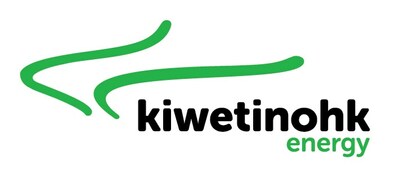Sign up for daily news updates from CleanTechnica on email. Or follow us on Google News!
I knew a fellow once who liked to say, “There’s more ways to kill a cat than kiss it to death.” As new trade policies in North America and Europe seek to stem the tide of cheap electric car models and subsidized batteries from China, Chinese companies are exploring workarounds designed to blunt those policies. The inexorable march of commerce will not be easily stanched if they have any say in the matter.
BYD Electric Car Factory In Turkey
A few days ago, the European Union began applying new tariffs on EVs imported from China, while trade discussions between the two continue. Also last week, South China Morning Post reported that Turkey will soon announce an agreement with BYD to construct a $1 billion electric car factory to be located in the the western part of the country. That factory will boost the company’s presence in Europe at a time of escalating trade tensions. Turkey is not part of the European Union but is a member of the European Union/Turkey Customs Union. Would the EU enforce the new tariffs against cars from a country that has a special trade agreement with? BYD obviously thinks not.
Turkey announced on July 5 that it was walking back plans announced a month ago to impose an additional 40 percent tariff on all vehicles from China, citing efforts to encourage investment. That decision followed talks between Erdogan and China’s President Xi Jinping on Thursday during a meeting of the Shanghai Cooperation Organisation in Astana, Kazakhstan.
BYD has become the largest automobile seller in China as well as the largest plugin vehicle seller in the world and has vowed to bring its lower priced EVs to Europe in the coming years, including the Seagull hatchback that executives expect to sell for less than €20,000 ($21,700). It opened a new factory in Thailand last week and has also taken over a former Ford factory in Brazil. It is reported to be exploring locations for a factory in Mexico and it is currently building its first car factory for Europe in Hungary.
BYD’s sales jumped to a record 982,747 vehicles in the second quarter, up more than 40 percent from a year ago. While the company’s sales in Europe have been sluggish thus far, it is mounting a major marketing push in the region, starting by taking Volkswagen’s place as a main sponsor of the European Championship football tournament.
Nibbling At The Edges
After the United States passed the Inflation Reduction Act that provided billions in new subsidies to boost domestic electric car production and cut into China’s supply chain dominance, Chinese manufacturers began investing in an unlikely place — Morocco. Why? Because Morocco has a free trade agreement with the US. In Tangiers and in industrial parks near the Atlantic Ocean, they have announced plans for new factories to make parts for EVs that may qualify for $7,500 credits to car buyers in the United States. Similar investments have been announced in other countries that share free trade agreements with the United States, including South Korea and Mexico.
At least eight Chinese battery makers have announced new investments in Morocco since the IRA was passed. By moving operations to US trading partners like Morocco, Chinese players that have long dominated the battery supply chain are seeking a pathway to cash in on increasing demand from American carmakers like Tesla and General Motors, Kevin Shang, a senior battery analyst at the consulting firm Wood Mackenzie told the Associated Press. “Chinese companies definitely don’t want to miss this big party,” he said.
In May, the US finalized eligibility rules governing its electric car tax credits. To qualify for the subsidies, carmakers cannot source critical minerals or battery parts from manufacturers in which China and other “foreign entities of concern” control more than 25% of the company or its board. Chinese companies hope the manufacturing boom in the North African country will allow them to meet growing demand and overcome rules designed to exclude them from the incentives offered by the Inflation Reduction Act. The rules “have led Chinese producers to increase investment in countries with whom the US has free trade agreements, namely South Korea and Morocco, to get past some IRA barriers,” the policy research firm Rhodium Group said in a report earlier this year.
Some of the new China investments in Morocco explicitly cite the new US subsidies as a reason. Many are joint ventures that have cited their ability to tinker with board seats and governance to comply with US rules. That includes CNGR, one of China’s largest battery cathode producers, which in September announced a $2 billion plan to build what it called a “base in the world and pan-Atlantic region” in a joint venture with the Moroccan royal family’s investment group, Al Mada.
Though CNGR owns slightly more than a 50% stake in the project, Thorsten Lahrs, CEO of its Europe division, said he’s confident its cathodes can qualify for the tax credits and change its board composition if necessary. If not, the company would pivot to other markets, including Europe. “To ride the wave of the IRA, you have to execute fast and comply with its regulations,” he said in a recent interview. “We have flexibility to be able to comply with all the changes in interpretation or rules.”
Gotion High-Tech signed a deal with Morocco last year for $6.4 billion investment to construct Africa’s first electric vehicle battery factory. Investments also include Youshan, a joint venture backed by Korean giant LG Chem and China’s Huayou Cobalt. It declined to provide details about the size of their investment but said the Morocco base means their cathodes “will be supplied to the North American market and subsidized by the US Inflation Reduction Act as Morocco is a signatory to the US Free Trade Agreement.”
LG Chem said the venture would adjust ownership shares as necessary to comply with US rules. China’s BTR Group announced a cathode factory in April noted that Morocco’s trade status with the United States and Europe would ensure “a seamless entry for the majority of its manufactured products into these regions.” Abdelmonim Amachraa, a supply chain expert who previously worked in Morocco’s Ministry of Industry and Trade, said Morocco was profiting from its “ability to coexist when a link can’t be found between China and the United States.”
Officials in Morocco have publicly and privately worked to foster ties up and down the automotive supply chain in both the East and the West. The country hosts more than 250 companies that manufacture cars or their components, including Stellantis and Renault as well as Chinese, Japanese, American, and Korean factories that make seats, engines, shock absorbers, and wheels. The industry exports almost $14 billion in cars and parts annually.
As the world transitions to electric vehicles, Morocco may appear to be a surprising beneficiary as China, the United States, and Europe compete for market share. But its officials worry that anti-competitive policies like tariffs and subsidies could ultimately make it more difficult to lure investment. Ryad Mezzour, the country’s minister of industry and trade, said in an interview that all the new investment doesn’t tell the full story. Morocco has also lost out on some projects due to what he called “a new age of protectionism.”
The investment has been a boon to countries like Morocco, but in Washington, Chinese firms have raised alarm by angling to access the American subsidies. “Under the Biden administration’s electric vehicle regulations, America’s working families will have to watch their hard earned tax dollars go to line the pockets of Chinese billionaires and businesses with links to the Chinese Communist Party,” US Representative Jason Smith, a Missouri Republican, said of the new guidelines. Trust the snarling pit bulls of the MAGA party to play the xenophobia card early and often.
China has spent years subsidizing companies that extract critical battery minerals; manufacturers of cathodes, anodes, and electrolyzers; and carmakers like BYD. Those companies’ eagerness to invest in Morocco to cash in on the Inflation Reduction Act shows how decoupling Chinese manufacturers from the supply chain will take years, if not decades, said Chris Berry, an adviser to battery companies and investors. “There is not going to be a lithium ion battery supply chain that does not have Chinese influence for a long time.”
The Takeaway
In a perfect world, all the nations of the world would recognize that the transition to zero emissions transportation is a global imperative and all put their shoulder to the wheel to make it happen as quickly as possible. But that would contradict human experience over the past 10,000 years or so. The Chinese can make the EV revolution a reality quickly, but that is not the politically correct result. If humans do survive the climate emergency, it will not be thanks to our genetic coding but to the vicissitudes of fate. That’s a pretty thin reed on which to base the fate of our species.
Featured image by sosinda from Pixabay
Have a tip for CleanTechnica? Want to advertise? Want to suggest a guest for our CleanTech Talk podcast? Contact us here.
Latest CleanTechnica.TV Videos
CleanTechnica uses affiliate links. See our policy here.
CleanTechnica’s Comment Policy




